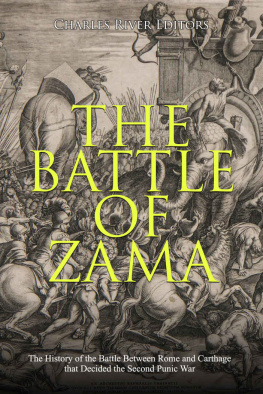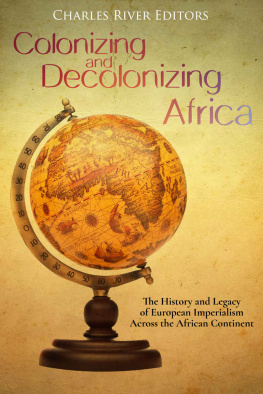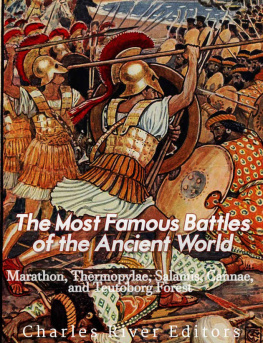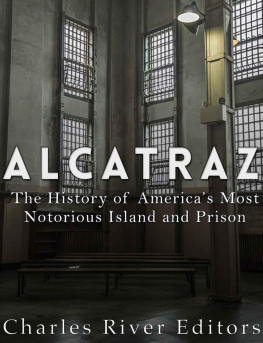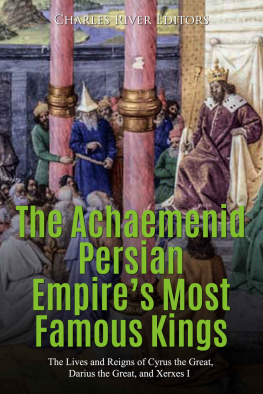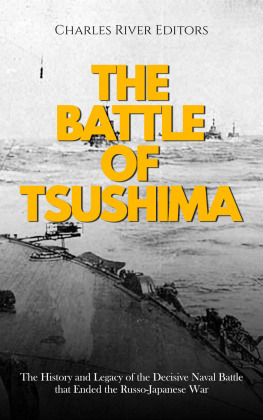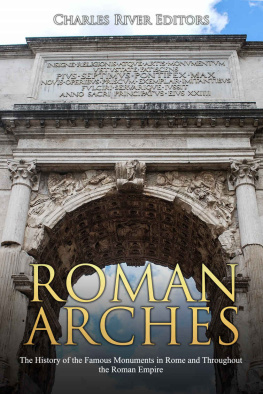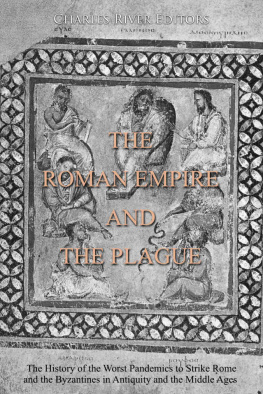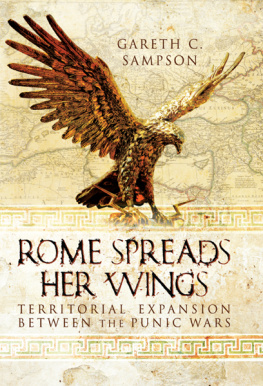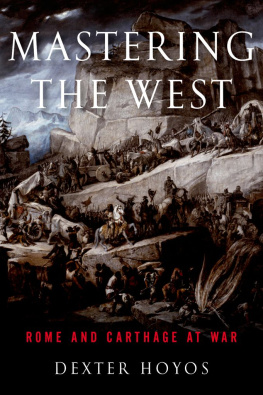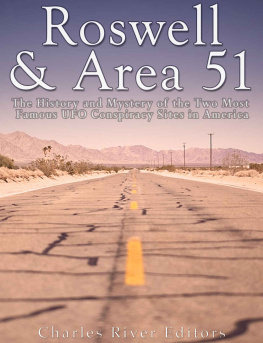Charles River Editors - The Battle of Zama: The History of the Battle Between Rome and Carthage that Decided the Second Punic War
Here you can read online Charles River Editors - The Battle of Zama: The History of the Battle Between Rome and Carthage that Decided the Second Punic War full text of the book (entire story) in english for free. Download pdf and epub, get meaning, cover and reviews about this ebook. year: 2020, publisher: Charles River Editors, genre: History. Description of the work, (preface) as well as reviews are available. Best literature library LitArk.com created for fans of good reading and offers a wide selection of genres:
Romance novel
Science fiction
Adventure
Detective
Science
History
Home and family
Prose
Art
Politics
Computer
Non-fiction
Religion
Business
Children
Humor
Choose a favorite category and find really read worthwhile books. Enjoy immersion in the world of imagination, feel the emotions of the characters or learn something new for yourself, make an fascinating discovery.
- Book:The Battle of Zama: The History of the Battle Between Rome and Carthage that Decided the Second Punic War
- Author:
- Publisher:Charles River Editors
- Genre:
- Year:2020
- Rating:5 / 5
- Favourites:Add to favourites
- Your mark:
- 100
- 1
- 2
- 3
- 4
- 5
The Battle of Zama: The History of the Battle Between Rome and Carthage that Decided the Second Punic War: summary, description and annotation
We offer to read an annotation, description, summary or preface (depends on what the author of the book "The Battle of Zama: The History of the Battle Between Rome and Carthage that Decided the Second Punic War" wrote himself). If you haven't found the necessary information about the book — write in the comments, we will try to find it.
The Battle of Zama: The History of the Battle Between Rome and Carthage that Decided the Second Punic War — read online for free the complete book (whole text) full work
Below is the text of the book, divided by pages. System saving the place of the last page read, allows you to conveniently read the book "The Battle of Zama: The History of the Battle Between Rome and Carthage that Decided the Second Punic War" online for free, without having to search again every time where you left off. Put a bookmark, and you can go to the page where you finished reading at any time.
Font size:
Interval:
Bookmark:
By Charles River Editors
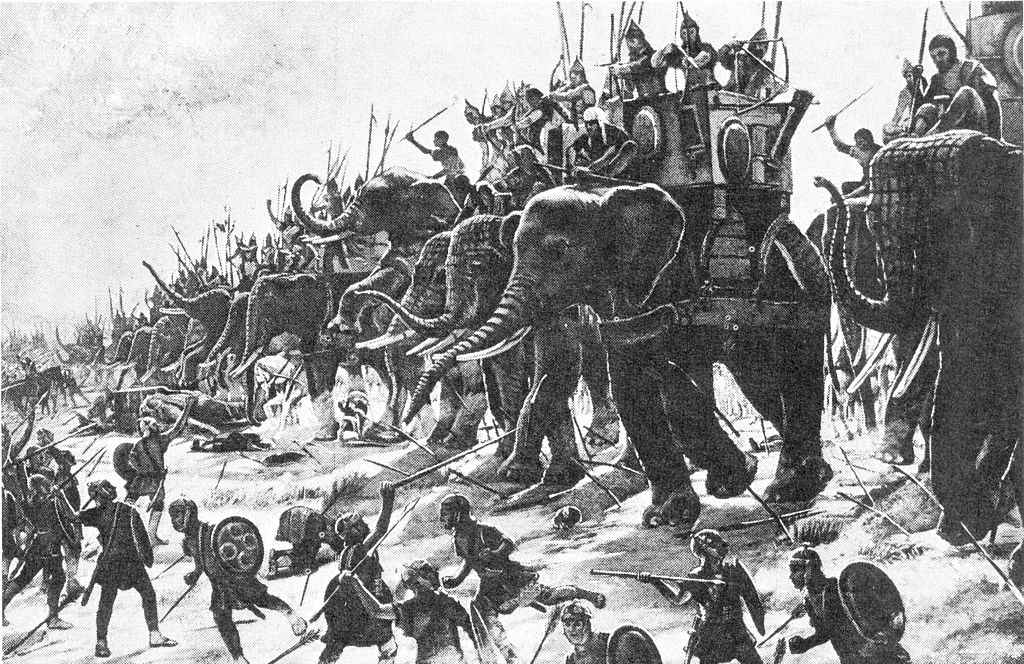
The Battle of Zama by Henri-Paul Motte

Charles River Editors provides superior editing and original writing services across the digital publishing industry, with the expertise to create digital content for publishers across a vast range of subject matter. In addition to providing original digital content for third party publishers, we also republish civilizations greatest literary works, bringing them to new generations of readers via ebooks.
Sign up here to receive updates about free books as we publish them , and visit Our Kindle Author Page to browse todays free promotions and our most recently published Kindle titles.
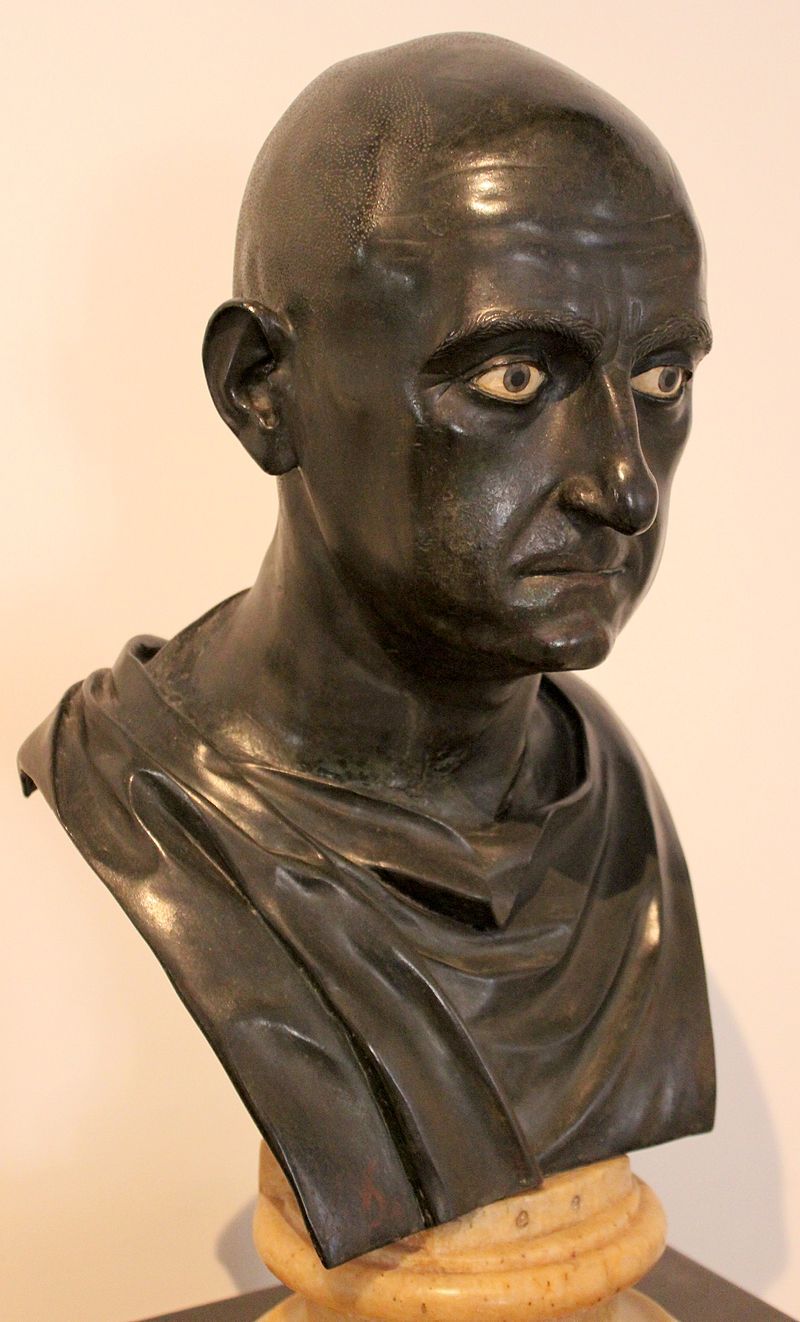
Miguel Hermoso Cuestas picture of a bust of Scipio Africanus
It is rare to find a single battle that is truly decisive in shaping the course of subsequent history, but occasionally a battle becomes pivotal in retrospect, defining and shaping what comes after it. The Battle of Zama, which pitted the army of the Roman Republic against the forces of Carthage on the plains of North Africa, was one such battle, and it featured two of historys greatest generals on opposing sides. Fought between two empires fighting for hegemony in the Mediterranean and beyond, the victor would become the most important power in the region and dominate the civilized world for centuries, while the loser would decline in power and vanish almost completely in less than 100 years.
Carthage was one of the great ancient civilizations, and at its peak, the wealthy Carthaginian empire dominated the Mediterranean against the likes of Greece and Rome, with commercial enterprises and influence stretching from Spain to Turkey. In fact, at several points in history it had a very real chance of replacing the fledgling Roman empire or the failing Greek poleis (city-states) altogether as master of the Mediterranean. Although Carthage by far preferred to exert economic pressure and influence before resorting to direct military power (and even went so far as to rely primarily on mercenary armies paid with its vast wealth for much of its history, it nonetheless produced a number of outstanding generals, from the likes of Hanno Magnus to, of course, the great bogeyman of Roman nightmares himself: Hannibal.
However, the Carthaginians foreign policy had one fatal flaw; they had a knack over the centuries of picking the worst enemies they could possibly enter into conflict with. The first serious clash of civilizations which Carthage was involved with was Greece, which rapidly became hostile when the Carthaginians began pushing to spread their influence towards the colonies known as Magna Graecia (Great Greece), which had been established in southern Italy and Sicily by several Greek poleis . These territories would become a casus belli of the First Punic War.
Certain foreign policy decisions led to continuing enmity between Carthage and the burgeoning power of Rome, and what followed was a series of wars which turned from a battle for Mediterranean hegemony into an all-out struggle for survival. Although the Romans gained the upper hand in the wake of the First Punic War, Hannibal brought the Romans to their knees for over a decade during the Second Punic War. While military historians are still amazed that he was able to maintain his army in Italy near Rome for nearly 15 years, scholars are still puzzled over some of his decisions, including why he never attempted to march on Rome in the first place.
While Hannibal had been in Italy, it had been relatively easy for the Carthaginian oligarchy, particularly the Hundred and Four, a federation of powerful traders, and Hannibals chief political rival, Hanno the Great, to marginalize him. For years his political party, the Barcids, had struggled to obtain even a token amount of funds and troops for his enterprise, but Hannibals arrival on the scene changed all that. Even his rivals could not deny the simple fact that, all else aside, the man could fight a battle like no other general alive. With Rome threatening invasion, Hannibal was suddenly the necessary hero of the hour. Bolstering his Italian mercenaries with levies from Africa and Carthage, the Carthaginian ruling elite desperately invested the money that Hannibal had begged for throughout the last decade in order to assemble a scratch force capable of at least presenting an appearance of force against Scipio Africanus army.
Hannibal can hardly have been thrilled to see the amount of trouble the Carthaginians went to in order to assemble an army that, had he had his way years before, might well have been completely unnecessary. Certainly it appears that he prepared to take the field with less than his customary ardor. At 45, he was still far from old, but ever since he had first left Carthage he had spent virtually all of his adult life fighting, and the strain was beginning to tell. By all accounts he was in poor health, and prone to sickness. Indeed, rather than seek to bring Scipio Africanus to battle, in 202 B.C. Hannibal met the Roman general and attempted to talk peace. The army the Carthaginians had succeeded in gathering, not to mention the presence of Hannibal himself, convinced Scipio that he might be well-advised to seek a diplomatic solution, and the two began negotiations, which were helped by the fact that both generals recognized a kindred spirit in the other. Through negotiations, Carthage was forced to give up much, especially considering Hannibals roster of victories, but Romes star was on the rise once again, and Hannibal knew he could not hope to win a protracted war.
Hannibal agreed to Scipios terms: Carthage would lose possession of Iberia and the Mediterranean islands, renouncing all claims to overseas territories but maintaining its heartland and African possessions, with the exception of the Numidian kingdom of Masinissa, who had declared for Rome. Reparations would be made, Scipio demanded, to Rome itself and to the countless families which Carthages wars had decimated, and the Carthaginian army and fleet must both be reduced in numbers, in order for them to never again threaten Romes supremacy. Hannibal, who recognized these terms, though harsh, as probably the best deal Carthage was likely to achieve, acceded to them, but the proposed peace between he and Scipio never happened. While the negotiations were going on, a Roman fleet which had gotten itself stranded upon the coast of Tunisia was seized by the Carthaginian navy and ransacked of all its supplies and equipment. When Scipio heard of this, he furiously demanded reparations, but, unaccountably, the Carthaginian oligarchy high-handedly turned him down. Perhaps they felt secure enough with Hannibal at the head of an army on Carthaginian soil to defy Rome, or perhaps the terms of the treaty stung their pride. Whatever their reasons, they could not have committed a bigger diplomatic error if they had gone out of their way to do so. Scipio departed the negotiations in a rage. There would be no terms.
On October 19, 202 BCE, on the plain of Zama in modern Tunisia, battle was joined, and for the first time in one of the battles of the Second Punic War, Hannibal had the infantry advantage and Rome had the cavalry advantage. The result would decide the fate of the Second Punic War and the course of history.
Font size:
Interval:
Bookmark:
Similar books «The Battle of Zama: The History of the Battle Between Rome and Carthage that Decided the Second Punic War»
Look at similar books to The Battle of Zama: The History of the Battle Between Rome and Carthage that Decided the Second Punic War. We have selected literature similar in name and meaning in the hope of providing readers with more options to find new, interesting, not yet read works.
Discussion, reviews of the book The Battle of Zama: The History of the Battle Between Rome and Carthage that Decided the Second Punic War and just readers' own opinions. Leave your comments, write what you think about the work, its meaning or the main characters. Specify what exactly you liked and what you didn't like, and why you think so.

